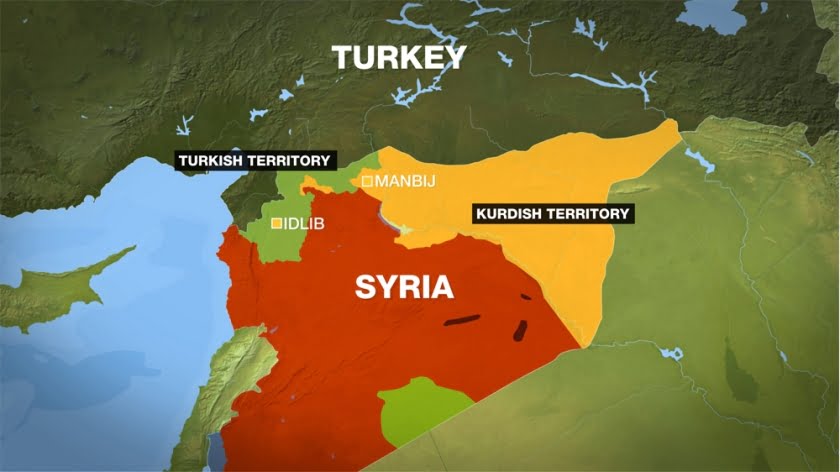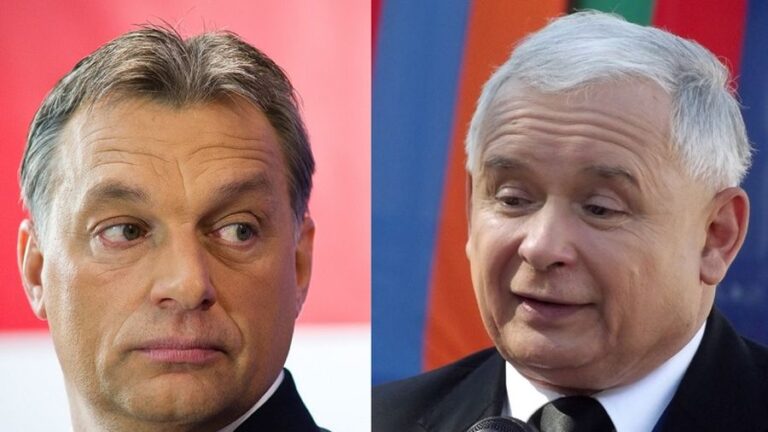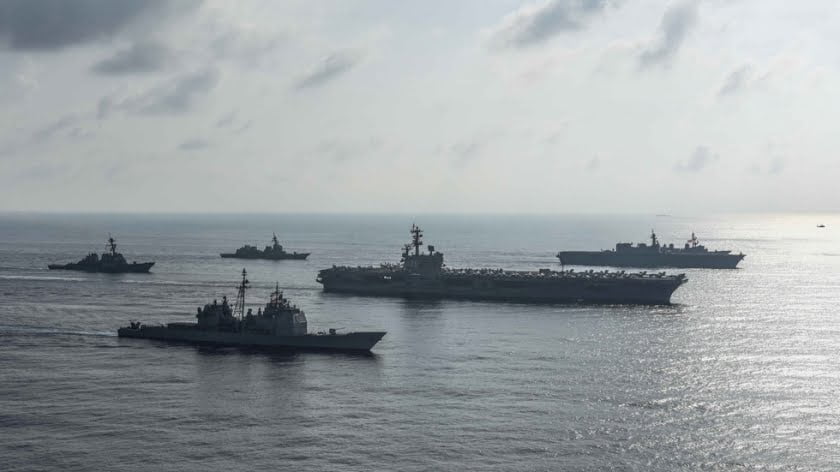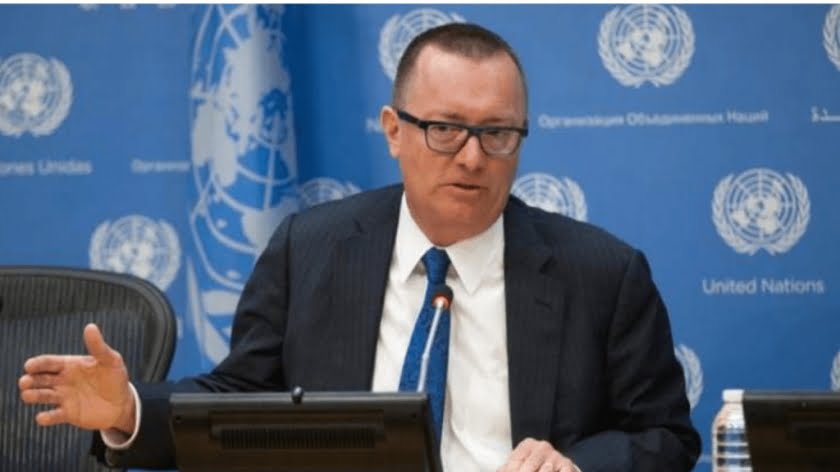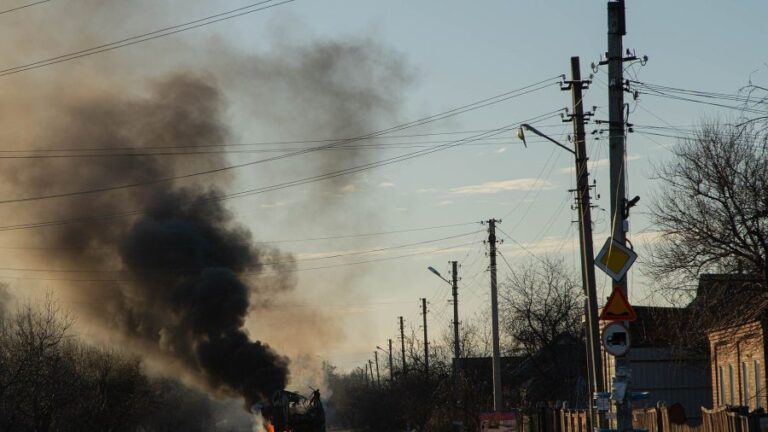Serbs, Listen Up! Here’s Why Russia’s Getting Chummy with Croatia
The Russian-Croatian rapprochement might have understandably taken a lot of Serbs by surprise, partly because Moscow hasn’t invested the proper resources into explaining it to the country’s population, but this multidimensional outreach strategy to their regional rival is part of Russia’s larger ambition to “balance” the Polish-led “Three Seas Initiative” through pragmatic engagements with the members of its “Austro-Hungarian” sub-bloc.
“Believe Me, We Are The Most Reliable Partner You Could Ever Have…”
Countless jaws must have hit the floor in Serbia immediately after the latest interview with Russian Ambassador to Croatia Anvar Azimov was released right before the weekend. Speaking to his host country’s media, Russia’s top representative practically made a pitch to its citizens for a full-fledged strategic partnership between these two states, with the following excerpts being the most attention-grabbing statements:
“Economic and energy cooperation was the topic of the historically important meeting in October 2017 when President Kolinda Grabar Kitarovic talked with Russian President Vladimir Putin for five hours. I believe she never had such a long conversation…It is said that the (Krk island LNG) terminal will be constructed with 100 million euro invested by the EU, but that is not enough money, and Russia could give you billions. Believe me, we are the most reliable partner you could ever have…We want to invest in Croatia as well, but there must be political will. We are certain that Russia can do more for Croatia than the US and the EU put together…We want Croatia to be strong and self-sufficient and maintain good relations with the EU and the USA…Croatian ministers like me because I am very straightforward and open, and I accomplish what I promise…You need Russia.”
Without a doubt, Russia is reaching out to Croatia in an unprecedented way that’s bound to make some Serbs feel a little surprised since they can’t imagine Russia ever offering them literal billions like Ambassador Azimov just did with Zagreb and then assuring them that Moscow could do more for their country than the US and the EU put together. Russia is undoubtedly Serbia’s top strategic partner and enjoys widespread and sincere love within the Balkan country’s society, but Serbs are forgiven for wondering what’s really going on nowadays between Russia and Croatia.
“Balancing” The Balkans
The author tackled this subject in a three-part analytical series from February 2017 that the reader is encouraged to skim through in order to get a basic understanding of what’s happening:
* “Deciphering The Russian-Croatian Rapprochement”
* “Russia’s New Strategy In The Balkans”
* “Balkan Challenges To The New Détente”
Since the publication of those three texts, two follow-up theoretical ones were released that explain more about Russia’s “balancing” strategy in general:
* “Russia’s Foreign Policy Progressives Have Trumped The Traditionalists”
* “Russia’s Grand Strategy In Afro-Eurasia (And What Could Go Wrong)”
To be brief, the powerful “progressive” faction of the Russian “deep state” envisions their country being the supreme “balancing” force in 21st-century Eurasia, though it can only truly fulfill this role if it enters into rapprochements with its non-traditional partners such as Croatia in order to become a “neutral arbiter” in regional affairs. In this case, the tangible basis for the Russian-Croatian rapprochement is being driven primarily by large-scale economic interests stemming from Sberbank’s efforts to protect its investments in Agrkor (the largest employer in the Balkans) following its epic bankruptcy and Russian energy companies’ desire to expand their presence in the Croatian marketplace.
Pretty much, cynics could say that “oligarchic interests” are behind this newfound and fast-moving partnership, though that’s not the entirety of it because Russian tourists are now flocking to this coastal state like never before, with the Croatian National Tourist Board estimating a 15% increase in guests just this year alone. The grand strategic motivations behind the comprehensive betterment of ties between Russia and Croatia is that Moscow is, like always, looking to weaken the EU’s anti-Russian sanctions regime from within by courting countries in “New Europe” who feel neglected by Brussels.
The Austro-Hungarian “Pivot”
There’s more to it than just that, though, because Croatia is involved in a bitter maritime dispute with tiny Slovenia, which just so happens to be one of Russia’s closest partners in Europe. Although Russia will probably never play any formal “balancing” role between these two, just like it’s unlikely to do so between Croatia and Serbia, Moscow is nevertheless in an enviable position by having excellent relations with Zagreb and the two neighbors that it’s in disputes with. Moreover, Russia’s on fantastic terms with Croatia’s northeastern neighbor Hungary and also with Austria, which altogether means that Moscow has “pivoted” to the former Austro-Hungarian Empire.
These four countries – Croatia, Slovenia, Hungary, and Austria – importantly form a third of the Polish-led “Three Seas Initiative’s” 12 total members, thereby enabling Russia to hinder the working efficacy of any potential anti-Russian agenda that it comes up with or is instructed by the US to implement. The strategic significance of this development can’t be understated because it essentially neutralizes what could have otherwise been a formidable future threat to Russia, though provided that this “balancing” act holds long enough to ensure that that the “Three Seas Initiative” internally fractures along a north-south axis between its more pragmatic Balkan & Central European countries and the institutionally Russophobic ones of Poland & the Baltic States.
The Need For A Narrative
For as masterful of a grand geostrategy as this is, and accepting that the Russian-Croatian rapprochement forms a crucial component of it, the worst shortcoming of this plan is that it was never communicated to the Serbian masses, who are now confused and haven’t the slightest clue why their closest international partner is now on such friendly terms with one of their worst enemies. Russia hasn’t “backstabbed” Serbia, nor “sold it out”, but it did seemingly take it and its loyal population “for granted” by assuming that nothing that it does could ever harm the trust between their two peoples, especially since Serbia’s geostrategic position compels it to pursue strong relations with Russia no matter what.
This “negligent” attitude was touched upon in general in the author’s previously shared piece about Russia’s grand strategy, but it’s certainly apt to reflect upon after Ambassador Azimov’s strong pitch to clinch a strategic partnership with Croatia. Russia must urgently communicate its “balancing” intentions to Serbs, regardless of whether they ultimately agree or disagree with this policy move, via its friendly proponents in the country’s academia and media fields, since remaining silent on the matter and pretending like nothing out of the ordinary is happening in Russian-Croatian relations naturally breeds suspicion, which is unwarranted but understandable in this context due to the absence of any explanatory narrative whatsoever.
The Kosovo Connection
The Russian-Croatian rapprochement is an integral part of Russia’s larger “Austro-Hungarian pivot” in seeking to split the Polish-led “Three Seas Initiative” along its north-south axis of Russophobic and pragmatic countries, respectively, but its grand “balancing” intentions in keeping this emerging threat in check have yet to be communicated to the Serbs, who are sitting on the sidelines with their mouths agape as they watch Russia chum it up with their Croatian adversaries. The narrative void that emerged after Russia got “so comfortable” with Serbia that it failed to invest any serious efforts in explaining this to its citizens has resulted in a lot of confusion over Moscow’s ultimate intentions, which is why a concerted effort must be undertaken as soon as possible in order to compensate for this soft power shortcoming.
This is more important than either party realizes at this point because a day of reckoning is soon approaching where President Vucic will probably end up “recognizing” (whether formally or informally) the “independence” of the NATO-occupied Autonomous Province of Kosovo and Metohija as part of a deal for joining the EU, an historically traitorous move that will earn him the unforgettable and everlasting revulsion of his betrayed people. In a deceptive bid to deflect some of this hatred, he’ll likely hide behind the fact that Russia will respect whatever decision the Serbian government makes on this matter because, to paraphrase a saying, “Russians can’t be more Serbian than the Serbs themselves”. Without the masses understanding the basics of Russia’s “balancing” act, then Vucic’s ploy might succeed in getting them to redirect some of their disgust towards Moscow.
Concluding Thoughts
Per all of the aforementioned reasons, it’s high time for Russia to openly reveal its “balancing” intentions to the Serbian public so that it can preemptively defend itself from Vucic’s deflection and preserve its well-earned reputation as their country’s historic partner instead of unwittingly “sacrificing” itself for their President’s political “sake”.
There’s no better opportunity to do so than now, when Serbs are already scratching their head in bewilderment over what Russia’s up to with Croatia, but failure to act at this sensitive moment could doom Russia’s place in the hearts and minds of millions, especially if it comes to expectedly pass that Moscow lends “legitimacy” to Vucic’s likely forthcoming decision to “recognize” Kosovo by deferring to its usual position that this is an “internal affair of the Serbian state”.
The only way to stave off a lasting soft power defeat is for Russia to get Serbs to see that it’s “balancing” the Balkans without “betraying” anyone in the process, and that the realpolitik of the Hyper-Realist “19th-Century Great Power Chessboard” paradigm has replaced rhetorical feel-good slogans about “brotherhood” in its grand strategic calculations.


